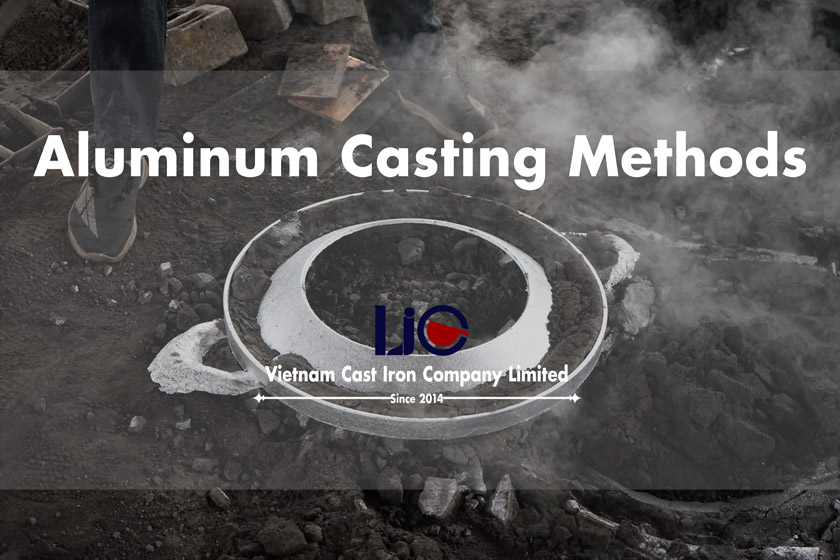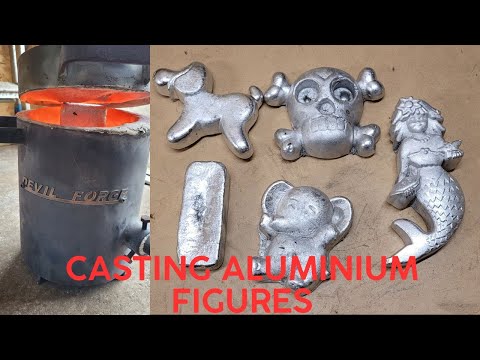How Alcast Company can Save You Time, Stress, and Money.
Wiki Article
6 Easy Facts About Alcast Company Shown
Table of ContentsAll about Alcast CompanyThe Alcast Company StatementsAlcast Company Fundamentals Explained3 Simple Techniques For Alcast CompanySome Ideas on Alcast Company You Need To KnowUnknown Facts About Alcast Company
Chemical Comparison of Cast Light weight aluminum Alloys Silicon promotes castability by lowering the alloy's melting temperature level and improving fluidity throughout spreading. Furthermore, silicon contributes to the alloy's toughness and wear resistance, making it valuable in applications where longevity is vital, such as auto parts and engine elements.It likewise improves the machinability of the alloy, making it easier to refine right into finished products. This way, iron adds to the general workability of light weight aluminum alloys. Copper enhances electric conductivity, making it advantageous in electric applications. It likewise improves rust resistance and contributes to the alloy's overall stamina.
Manganese adds to the toughness of light weight aluminum alloys and boosts workability (Aluminum Casting). It is frequently utilized in functioned light weight aluminum items like sheets, extrusions, and accounts. The presence of manganese help in the alloy's formability and resistance to fracturing during fabrication processes. Magnesium is a lightweight element that supplies stamina and impact resistance to aluminum alloys.
See This Report on Alcast Company
It permits the manufacturing of light-weight parts with exceptional mechanical homes. Zinc improves the castability of aluminum alloys and helps control the solidification procedure during spreading. It boosts the alloy's strength and hardness. It is typically found in applications where complex shapes and great details are required, such as decorative spreadings and specific automobile parts.
The primary thermal conductivity, tensile strength, return strength, and elongation differ. Amongst the above alloys, A356 has the highest thermal conductivity, and A380 and ADC12 have the least expensive.
Alcast Company - The Facts

In precision spreading, 6063 is well-suited for applications where complex geometries and high-quality surface coatings are paramount. Examples include telecommunication units, where the alloy's premium formability permits smooth and aesthetically pleasing designs while maintaining structural stability. In a similar way, in the Lights Solutions sector, precision-cast 6063 elements create elegant and reliable illumination components that call for complex shapes and good thermal efficiency.
The A360 shows superior elongation, making it suitable for complicated and thin-walled elements. In accuracy spreading applications, A360 is appropriate for sectors such as Customer Electronics, Telecommunication, and Power Tools.
More About Alcast Company
Its one-of-a-kind properties make A360 a beneficial option for accuracy casting in these industries, improving product toughness and high quality. aluminum casting company. Light weight aluminum alloy 380, or A380, is an extensively made use of spreading alloy with a number of distinct qualities.
In precision casting, aluminum 413 radiates in the Consumer Electronics and Power Tools markets. This alloy's premium deterioration resistance makes it a superb option for outside applications, guaranteeing resilient, sturdy products in the discussed sectors.
Alcast Company Fundamentals Explained
As soon as you have chosen that the light weight aluminum die casting procedure is ideal for your article job, an important following action is selecting the most appropriate alloy. The aluminum alloy you choose will significantly impact both the casting procedure and the buildings of the end product. Due to this, you should make your choice thoroughly and take an informed approach.Identifying the most suitable light weight aluminum alloy for your application will imply weighing a vast range of characteristics. These comparative alloy attributes adhere to the North American Pass Away Spreading Association's guidelines, and we have actually divided them into 2 classifications. The very first group addresses alloy attributes that affect the production procedure. The second covers qualities affecting the residential properties of the last product.
Some Known Questions About Alcast Company.
The alloy you select for die spreading directly affects a number of aspects of the casting procedure, like just how easy the alloy is to deal with and if it is prone to casting problems. Warm breaking, additionally referred to as solidification cracking, is a common die casting defect for light weight aluminum alloys that can cause interior or surface-level rips or splits.Specific light weight aluminum alloys are a lot more prone to hot fracturing than others, and your choice must consider this. One more typical problem discovered in the die casting of aluminum is die soldering, which is when the cast sticks to the die wall surfaces and makes ejection challenging. It can harm both the cast and the die, so you should search for alloys with high anti-soldering residential or commercial properties.
Deterioration resistance, which is currently a significant characteristic of light weight aluminum, can vary significantly from alloy to alloy and is an important particular to consider depending upon the ecological conditions your product will be subjected to (aluminum casting manufacturer). Put on resistance is one more residential property commonly sought in aluminum products and can separate some alloys
Report this wiki page